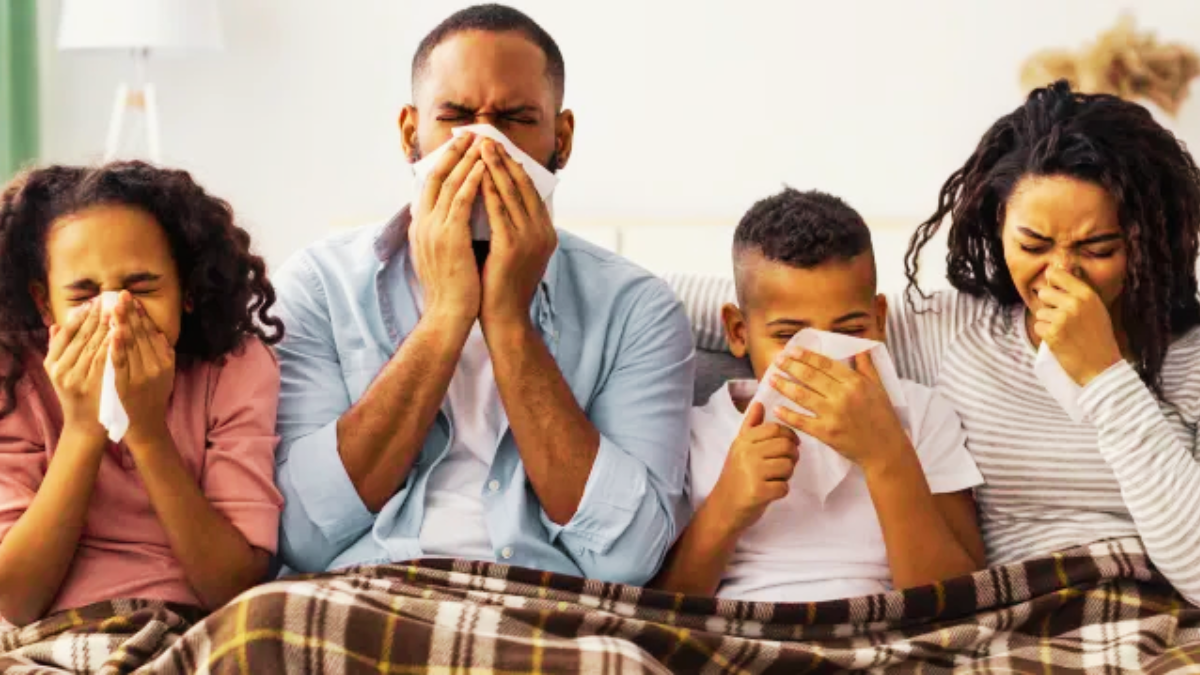News
More than 5,300 New Respiratory Infections Reported in Just 7 Days

More than 5,300 cases of acute respiratory infections were reported in public health services in a single week in September, marking an unprecedented rate for the year. The surge, attributed to a prolonged drop in temperatures and the simultaneous circulation of multiple viruses, has led to a total of 18,851 cases over the past four weeks.
The most recent figures reveal 5,356 cases were recorded between 1 and 7 September, exceeding the 5,000-case mark for the first time this year, according to Dr Fazil Khodabocus, acting director of health services.
This contrasts sharply with previous weeks, which saw 4,641 cases, 4,601 cases, and 4,253 cases in the three preceding weeks, respectively.
Hospital Capacity Stretched Thin
The spike in infections has put immense pressure on public hospitals, with reports of a shortage of beds for new admissions at Dr A.G. Jeetoo Hospital.
Following information obtained by Defi Media, some patients have had to be transferred to other facilities, such as the SSRN in Pamplemousses and the SAJ Hospital in Flacq.
In some cases, patients have even signed “Discharge against medical advice” (DAMA) forms to return home due to the lack of available beds.
While staff at Victoria Hospital state the situation remains “under control” despite limited space, they confirm that admissions for influenza are rare unless complications such as pneumonia or bronchitis develop.
Understanding the Causes and Risks
Dr Khodabocus attributes the rise to a prolonged period of lower temperatures, which facilitates the transmission of various viruses, including influenza (A(H1N1), A(H3N2), and B), as well as adenoviruses, rhinoviruses, respiratory syncytial virus, and Covid-19.
The rise in infections has led to complications, including bronchitis and pneumonia, requiring hospitalisation, particularly for the elderly and those with comorbidities like cardiovascular disease, asthma, diabetes, or kidney conditions.
Dr Khodabocus warned that while no deaths have been officially reported, “that does not mean there have not been any,” as acute respiratory infections can lead to rapid and sometimes fatal deterioration in vulnerable individuals.
The World Health Organisation (WHO) estimates that influenza causes 290,000 to 650,000 deaths annually worldwide.
Public Health Recommendations
In light of the crisis, health officials are urging caution. Dr Khodabocus emphasised the importance of consulting a doctor for proper treatment and avoiding self-medication.
He confirmed that the vaccine remains available at regional hospitals and major health centres, noting it “protects against complications and reduces the risk of hospitalisation.”
Dr Waseem Ballam of the Public Health Doctors Union (PHDU) also called for vigilance, advising the public to wear masks in public transport and poorly ventilated areas.
He noted an increase in cases with severe symptoms, intense pain, and fatigue, affecting all age groups, particularly in the west of the country.
Alongside respiratory infections, Dr Meetheelesh Abeeluck, president of the Government Medical and Dental Officers Association (GMDOA), has observed a rise in gastroenteritis cases at the SAJ Hospital, advising the public to boil tap water and consume fresh or properly reheated food to minimise risks.
Source: Defi Media











